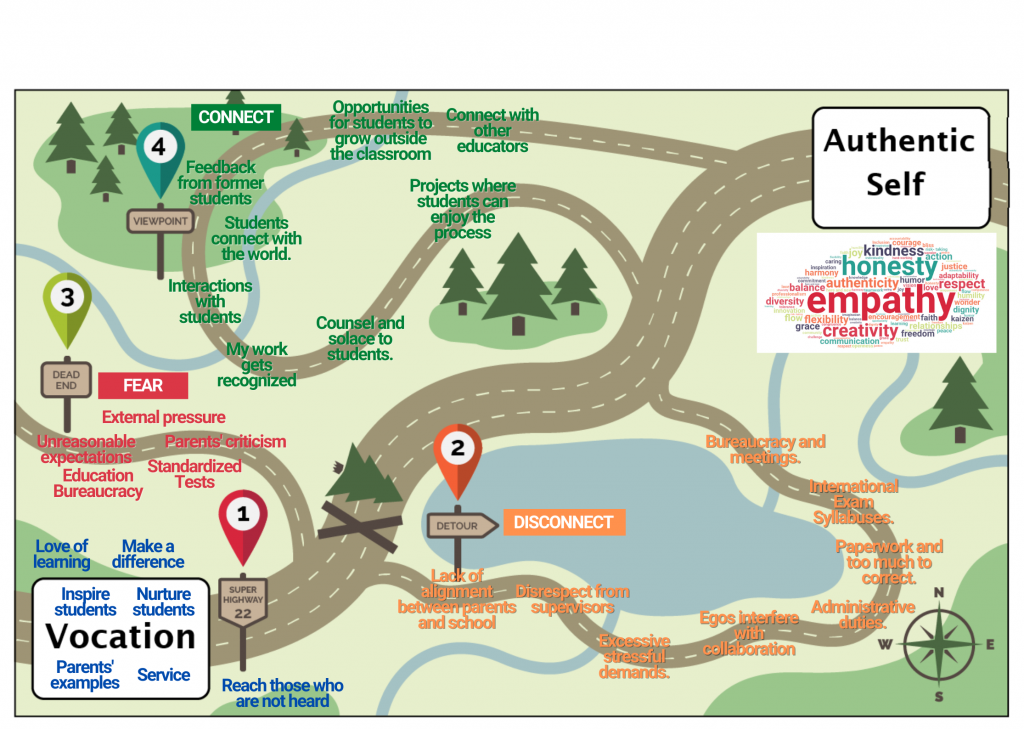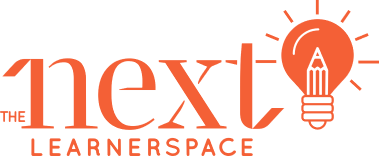Reflections

Vocation
Why did we choose to become educators?
- My mother´s example.
- Something that matters. Service.
- Help and share what I know with students.
- I love learning and helping others to learn.
- Reach individuals who maybe have never felt seen or heard.
- Make a difference in the lives of students.
- Inspire students to become the best version of themselves.
- Nurture the students in my school.
- I enjoyed working on many tasks at the same time and being creative.
- Encourage critical thinking and analysis by young people to ensure they had the skills to question things happening around them.
- I loved attending school.
How connected are we with our vocation?

Activities and moments that enhance our connection
- Sharing break duties and supervising lunch.
- Assemblies, community building exercises.
- Discipline incidents, connection with inner feelings of students.
- Working one-on-one with students.
- When I see results or get positive feedback from my students or former students.
- When colleagues and administrators recognize my work.
- Opportunities for students to grow outside the classroom, in connection with nature or traveling..
- Providing counsel and solace for students and adults.
- When after many years my former students understand the intentions behind my actions.
- Connecting socially with students every day.
- When students connect in deeper ways with the world around them, not necessarily through academics.
- Developing projects where students can enjoy the process.
- Visiting schools and connecting with other fellow educators.
Activities and moments that disconnect us
- Lack of alignment between school and families. Dealing with difficult and aggressive parents
- Lack of respect from supervisors.
- Being told what to do inhibiting creativity.
- Excessive demands that cause stress.
- Administrative/bureaucratic work, meetings.
- Despite a push for equity education still controlled by those with immense privilege.
- Students are not listened to, egos interfere with collaboration.
- Students are passive recipients of their learning.
- Administrative duties.
- Having too much to correct.
- Paperwork.
- Stress of getting through syllabuses for international examinations.
Fear
Answers unanimously recognize that there is fear in education, in that it has an inhibiting and sometimes paralyzing effect on teachers.
External pressure and unreasonable expectations, both on the part of education authorities as well as parents´ criticisms, are big fear factors.
Standardized tests, the comparison and publication of their results and education bureaucracies also contribute to fear in the profession.
Fear is a constraint to our projects, a positive one that will stimulate our creativity. We will come back to these conclusions as we develop our projects so that into account these fear factors and address them to encourage other fellow educators to take part in them.
Summary of Answers
- Not being able to control how students shape up to be, that we can, at best, provide guidance, love and support.
- Making mistakes or wrong choices.
- Embracing the uncertain.
- Failure that may stop risk taking, both on the part of teachers as well as students.
- Educators who are afraid to leave their tested and tried methods and challenge their students.
- Change, we are used to doing what we are told.
- Change, failure, looking foolish, the unknown, growth, increased abilities and responsibilities and even happiness.
- Education authorities foster fear by comparing publicly national education test results.
- Extra demands on time.
- Exacerbated by standardized assessments and national benchmarking.
- Education to be measured and students to be leveled.
- Parents´ unfounded criticisms. Unhappy parents driving negativity about teaching practices.
- Being politically correct to suit a public biased agenda.
- Ego, as a driver for success at all costs.
- The bureaucracy of education and its obsession with data.
- Questioning the purpose of our teaching.
